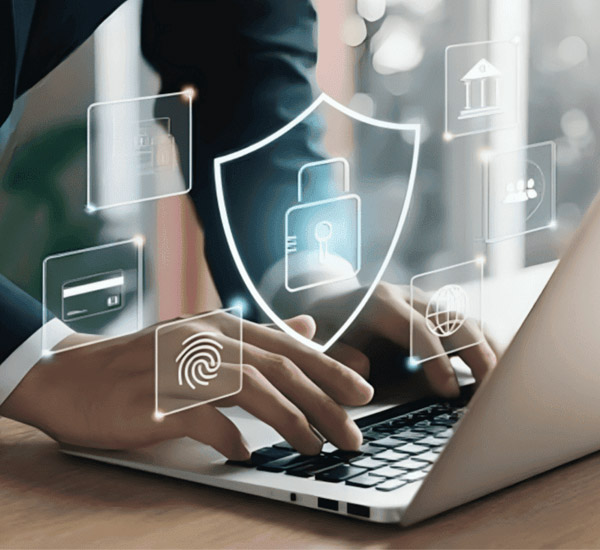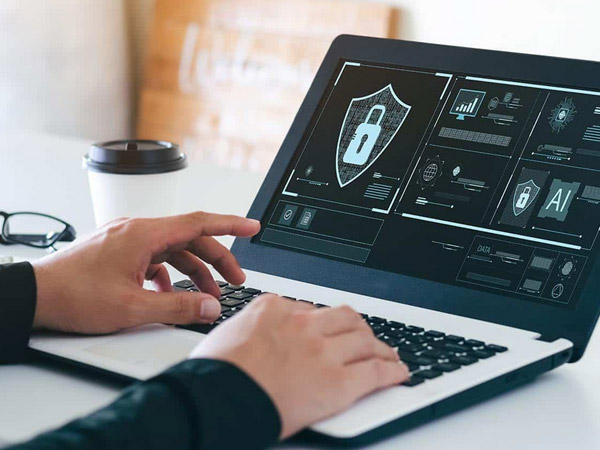Cybersecurity Training for Large Corporations
Imagine your company’s data being compromised overnight. Sensitive information, customer trust, and millions in revenue are all gone. Unfortunately, this is not pure fiction. In 2025, the average cost of a data breach for large businesses will be more than £3.8 million, and the number of cyberattacks will continue to increase. That’s why cybersecurity training is more than a buzzword; it’s a boardroom priority.
If you run or manage a huge organisation, your employees must be prepared. Cybersecurity training for businesses is no longer optional; it is necessary to remain ahead of hackers, ransomware, phishing schemes, and internal risks. In this article, we’ll look at the relevance of cybersecurity training for major organisations, uncover essential techniques, answer common questions, and show you how to future-proof your organisation with the appropriate approach.

Why Cybersecurity Training Matters More Than Ever?
1. Cybercrime Is a Growing Business
Cybercrime is estimated to cost the globe £8.4 trillion by 2025, more profitable than the global drug trade. Hackers target huge corporations because of their massive databases, lucrative customer data, and complex systems. Without comprehensive cybersecurity training, your staff may unwittingly become your greatest vulnerability.
2. Human error accounts for 88% of data breaches
According to Stanford University research, staff mistakes account for 88% of data breaches. Clicking on phishing emails, using weak passwords, and practising poor security hygiene are all frequent issues that can be addressed with proper cybersecurity training.
3. Compliance isn’t Optional
Regulations such as GDPR, NIS2, and ISO/IEC 27001 require corporations to implement cybersecurity awareness and training programs. Failure to comply can result in significant penalties, legal action, and reputational damage.
4. Reputation Is Everything
A single breach can inflict catastrophic harm to your brand. Large organisations who spend in training not only avoid assaults, but also gain a competitive advantage by demonstrating their dedication to data security and trustworthiness.
5 Benefits of Cybersecurity Training for Companies
Defence
Employees spot phishing and threats faster.
Data
Keep client and company information secure.
Confidence
Staff work smarter and safer.
Losses
Prevent costly breaches and downtime.
Compliant
Meet industry regulations and build trust.

Key Features of Effective Cybersecurity Training for Companies
Role-based Learning
Customised information based on work roles guarantees that every employee, from junior staff to top executives, understands the threats they may face.
Real-time simulations
Phishing simulations, threat detection exercises, and incident response drills improve learning retention and prepare staff for real-life events.
Continuous learning
Cybersecurity evolves with time. Training programmes should be continuous, with regular updates on emerging dangers and best practices.
Multi-Language and Global Accessibility
For multinational organisations, having multilingual and cloud-accessible platforms provides uniformity and inclusivity among worldwide staff.
Common Mistakes in Cyber Security Training for Companies
A single session isn’t enough; threats evolve constantly.
Dry, boring sessions fail to stick. Training should be interactive.
Generic advice doesn’t address your company’s specific risks.
Ultimate Cybersecurity Training Strategy for Large Corporations
Here’s how top-performing organisations organise their training to be cyber-resilient:
1. Board-Level Buy-In
Training is more effective when leaders set the example. Get your C-suite involved in awareness campaigns and make cybersecurity a business KPI.
2. Gamified Learning
Gamification improves engagement. Leaderboards, badges, and team-based tasks can greatly increase involvement.
3. Cyber Champions Programme
Designate internal ambassadors or cyber champions in each department. They act as peer mentors, provide support, and keep security top of mind.
4. Phishing Attack Simulations
Run realistic phishing simulations to put staff to the test in a controlled environment. Use the results to provide targeted remediation.


Real-World Case Studies on the Cost of Not Training
Case Study #1: Marriott International
A huge data breach affecting over 5 million guests occurred in 2020 as a result of two workers’ misuse of login credentials. What’s the root cause? There is a lack of password hygiene training.
Case Study #2: Capital One
An ex-employee exploited a vulnerability caused by improper firewall settings, costing the organisation £65 million in damages. Proper training could have prevented this.
Case Study #3: NHS Ransomware Attack
A simple phishing email shut down NHS systems in 2017. The research stated that simple cyber awareness may have prevented the calamity.
Why Choose School of Coding & AI?
School of Coding & AI provides bespoke cybersecurity training solutions designed specifically for multinational organisations. Our programmes are carefully customised to suit your industry’s unique challenges and are delivered by authorised security specialists with real-world expertise. The training is highly interactive and gamified, making learning engaging and memorable for employees at all levels. Using real-time analytics, we track progress and effectiveness, ensuring measurable results. Regular updates keep the content aligned with global standards and compliance requirements. Whether you’re training 100 employees or 10,000, we help your entire team become a vigilant, proactive “human firewall” that safeguards your business from evolving cyber threats.
Ready to Learn AI and Lead the Future?
Take the first step in your AI journey with the School of Coding & AI. Our programmes are designed to help SMEs build smart, scalable, and sustainable solutions.
01902 509 209
Frequently Asked Questions (FAQs)
Cybersecurity training is an organised course that teaches personnel about cyber hazards and how to avoid them. It covers best practices for password management, email security, phishing awareness, data handling, and secure remote working.
Everyone. From the IT department to the finance team, human resources, the executive suite, and even third-party vendors. Hackers often look for the weakest link, which could be anyone.
At least, twice a year; ideally, it should be continuing. Quarterly refreshers, monthly micro-learning courses, and real-time notifications to emerging hazards are perfect.
Reduces the danger of data breaches.
- Improves staff awareness.
- Promotes compliance.
- Develops customer trust.
- Saves millions from potential damages.
- Improves internal communication and collaboration on security problems.
- Pre and post assessment scores
- Reduced phishing click rates
- Speed of incident reporting
- Employee Feedback
- Compliance audit findings


